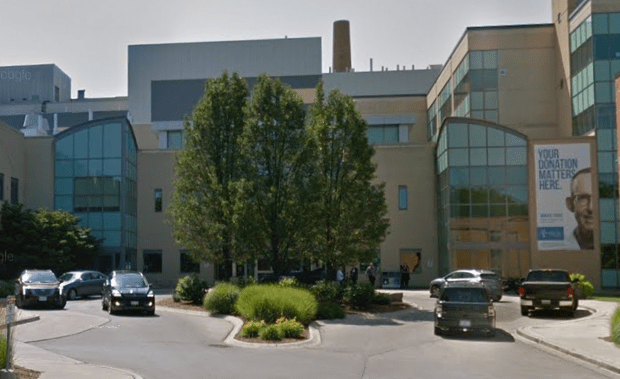St. Joseph’s Health Care London has announced it will immediately stop using dogs in medical research after public backlash.

The move comes just days after a report from the Investigative Journalism Bureau claimed researchers inside St. Joseph’s Hospital’s Lawson Research Institute were secretly using and killing puppies for human heart research.
The report prompted public outcry over the use and treatment of the dogs, leading to the hospital to defend its actions, writing in a statement that all of their research “adheres to the highest standards of, and is in compliance with, all scientific and ethics protocols.”
“The Government of Ontario is an important partner in every aspect of our work. Following consultations with the province, St. Joseph’s will immediately cease research studies involving dogs,” the hospital’s statement, issued on Tuesday, reads.
The Investigative Journalism Bureau’s probe also claimed that through two current staff members, photos, and documents, they learned that researchers induced up to three-hour-long heart attacks in the animals before killing them and removing their hearts.
Story continues below advertisement
In written statement last week, hospital officials said that the story contains several inaccuracies.
When asked to clarify what the inaccuracies were, the hospital did not respond.
Global News also asked the hospital to confirm what studies dogs were used for at Lawson, and if dogs killed or euthanized as a result of the experiments. The hospital did not respond to those questions either.
More on Health
More videos
“St. Joseph’s values of respect, excellence and compassion are foundational to our ethical care and treatment of animals in research,” the statement reads. “We are also regulated and guided by rigorous policies and procedures for high-quality animal care – policies and procedures that are directed, legislated, monitored and/or enforced by institutional, regional, provincial and national bodies.”

Get weekly health news
Receive the latest medical news and health information delivered to you every Sunday.
The Investigative Journalism Bureau’s report went into detail of how the dogs, which are between the ages of 10 months to two years, are discreetly brought into the building and taken to the sixth floor research win. It said that one whistleblower reported they used loud music to drown out the barking and the animals were left alone for the majority of the day.
When asked about the situation during a press conference on Tuesday, Premier Doug Ford called the situation “cruel” and “unacceptable behaviour.”
“These poor little beagles, you look at their face, and whoever leaked it, I want to thank them because this was all done in secret,” he said.
Story continues below advertisement
Ford said he has directed his team to “hunt down” all other cases of animal testing on dogs or cats to put a stop to it.
“This is unacceptable, imagine your little dog being here and they try to put them into a heart attack, the poor thing.”
“A message if you are doing this with dogs or cats, I am going to catch you,” Ford said.
Ford announced that he would legislate a ban on the use of dogs and cats for medical testing.
Trending Now

Malcolm-Jamal Warner’s mother breaks silence weeks after actor’s death

Montreal father assaulted in front of his children leads to outrage from officials
Andrew Fenten is an animal-bioethicist and professor of philosophy at Dalhousie University, as well as a member of the board of directors for the Beagle Alliance, an advocacy and rescue organization that works to rehabilitate and rehome animals used in research.
Speaking on the situation, he says laws and regulations in Canada around animal testing are quite relaxed.
“Ontario is the only province or territory with a dedicated statute, which is disappointing to say the least. I don’t think that quite captures my feelings on that at a federal level, we have no federal statute dedicated to the use of animals in research,” Fenten noted.
Fenten said the ethics around using dogs in research is hard because they cannot consent to what is happening to them, and argues there is a duty for researchers to provide them with better care during and after they are done.
Story continues below advertisement
“We owe these dogs something, because remember, research is involuntary for these dogs. They cannot consent to research use, because they cannot actually evaluate the pain risks and the harm risks that come with research, and then consent to participation regardless of risk,” he says.
Fenten is calling for more regulation and oversight over animal testing and notes that, despite the existence of the Canadian Council for Animal Care (CCAC), the organization is not overseen by the government and does not have the ability to regulate or oversee animal testing in Canada.
He said that CCAC certification wouldn’t have protected these dogs because the Lawson Research Institute is listed as certified on the CCAC website.
“What’s missing here is public accountability for any certifying organization that includes the (CCAC), so they need to be held accountable, because Canadian taxpayers are indirectly funding this organization, and ethics needs to be at the heart of any organization that certifies animal use.”
© 2025 Global News, a division of Corus Entertainment Inc.

